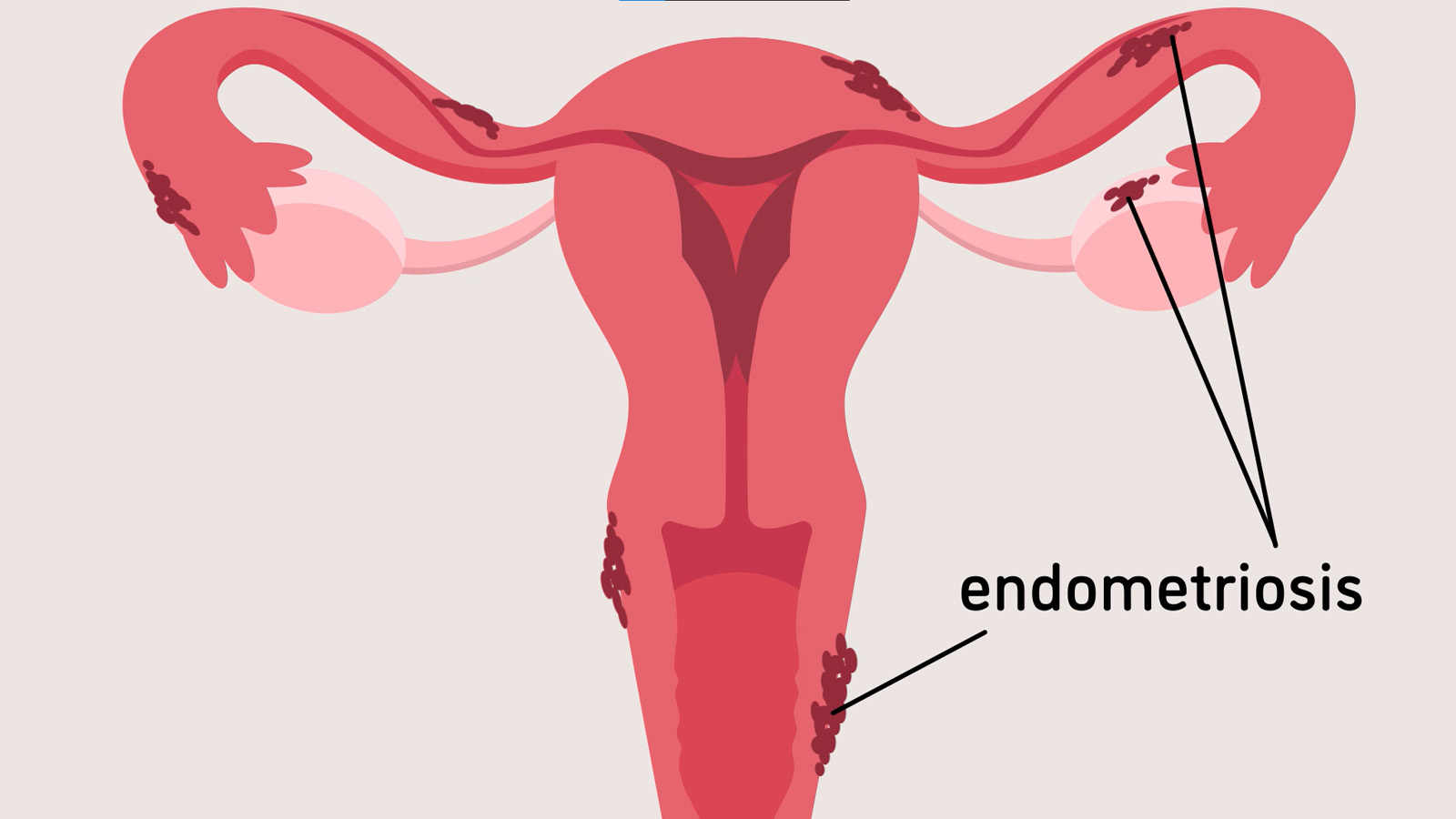Articles

Nutrition for endometriosis: A guide to manage symptoms.
What is Endometriosis?
Endometriosis is a complex chronic
systematic inflammatory gynecological disease. Characterized by the ectopic
implantation of the functional tissue of the uterus, (outside the uterine
cavity). Leading to pain, inflammation, and various symptoms that can
significantly impact quality of life.
Endometriosis affects approximately
of 10 % women of reproductive age worldwide, 2-4% of perimenopausal women, and
up to 50% of infertile women.
What are the symptoms of
endometriosis?
- Pelvic pain.
- Painful periods (dysmenorrhea)
- Heavy menstrual bleeding.
- Painful urination (dysuria).
- Painful defecation (dyschezia).
- Irritable bowel syndrome (IBS)
symptoms, such as constipation and/or diarrhea and abdominal discomfort
- Fatigue.
- Depression.
What are the possible causes of
endometriosis?
It is thought that immune system
disorders, hormonal imbalances, and genetic predispositions worsen the
condition, though the precise cause is still unknown.
What is the treatment of endometriosis?
While
there's no one-size-fits-all solution, treatment can be divided into two
categories: pharmaceutical treatments that try to stop the growth, surgical
treatments that try to remove the endometriotic implants, nutrition can play an
essential role in managing symptoms, and improving quality of life for women
who are suffering from endometriosis.
Increasing attention is being paid to how nutrition
can influence the course of the disease. Proper nutritional strategies can help
reduce inflammation, balance hormones, and improve overall well-being for those
living with endometriosis.
It
has been found that certain diets can help reduce some symptoms
1)
Anti-Inflammatory
Diet: Reduces the symptoms.
2)
|Mediterranean
Diet: Has an anti- inflammatory role, which also helps in reducing the
symptoms.
3)
High
fiber Diet: Increases the microbiome diversity which leads to down regulation
of Mast cells and decreases inflammation.
What nutrients to focus on?
· Antioxidants: (such as resveratrol, anti-inflammatory agents (composed of
vitamins, minerals, probiotics, and fish oil), and anti-proliferative compounds
(such as garlic). Dietary supplementation was found to reduce dysmenorrhea
while having no effect on pelvic pain.
· Fiber-Rich Foods: Clinical interest has grown in the possible anti-inflammatory
benefits of plant-based diets. Because vegetables and fruits contain bioactive
plant compounds like polyphenols, phytoestrogens, resveratrol, and vitamin C, a
number of studies have demonstrated the health benefits of eating a diet rich
in these foods.
· Healthy Fats: Include sources of healthy fats, such as avocados, olive oil, and
nuts. These can be beneficial for hormone regulation and overall health.
· Omega-3 Fatty Acids: Incorporate sources of omega-3s like fatty fish (salmon,
mackerel), chia seeds, walnuts, and flaxseeds. Omega-3s can help lower
inflammation and may alleviate pain.
What foods and nutrients to limit or
avoid?
· Avoid Processed Foods.
· Limit sugar.
· Refined carbohydrates.
· Trans fats.
· Red meat.
· Dairy products.
Which can
increase the risk of endometriosis or, exacerbate inflammation.
What supplements
are recommended?
· Vitamins (C, D, and E): They have role in reducing inflammation and reducing pain.
· Calcium: symptoms managing and reducing inflammation.
· - Curcumin: The active compound in turmeric, known for its
anti-inflammatory properties.
· Magnesium: Can help relieve menstrual cramps and improve overall mood.
· Polyphenols: Anti-inflammatory role.
How water intake can help in
endometriosis?
Hydration and endometriosis are
connected in several ways such as:
· Inflammation reduction: proper hydration helps in decreasing inflammation, which can
alleviate some symptoms.
· Detoxification: adequate water intake aids the body natural detox processes that
help in reducing endometriosis symptoms.
· Improves circulation: staying well-hydrated enhances blood flow, promoting better
oxygen and nutrient delivery to the affected pelvic tissue.
· Alleviate pain: hydration can help reducing pain by relaxing uterine muscles and
preventing muscle spasms.
· Assists proper digestion and
absorption: proper hydration supports
digestive health, which can influence hormonal balance.
· Promotes overall well-being: good hydration contributes to improved energy levels, mood, and
immune response, all beneficial for managing endometriosis symptoms.
Lifestyle Factors:
· Regular Exercise: Physical activity can help manage weight and reduce the severity
of symptoms by aiding hormone regulation.
· Stress Management: Techniques such as yoga, meditation, and deep breathing exercises
can be beneficial, as stress can exacerbate symptoms.
· Adequate Sleep: Prioritizing good sleep is essential for overall health and can
help manage stress levels.
· Developing a Personalized Plan: Every individual’s experience with
endometriosis is unique, so working with a healthcare professional—such as a
registered dietitian or a physician who specializes in endometriosis—is
crucial. They can help tailor a nutrition plan based
on individual symptoms, health history, and preferences.
Conclusion
References:
- Tsamantioti ES, Mahdy H. Endometriosis. [Updated 2023 Jan 23]. In: StatPearls [Internet]. Treasure Island (FL): StatPearls Publishing; 2025 Jan-
- Neri, L. C. L., Quintiero, F., Fiorini, S., Guglielmetti, M., Ferraro, O. E., Tagliabue, A., Gardella, B., & Ferraris, C. (2025). Diet and Endometriosis: An Umbrella Review. Foods (Basel, Switzerland), 14(12), 2087.
- Abulughod, N., Valakas, S., & El-Assaad, F. (2024). Dietary and Nutritional Interventions for the Management of Endometriosis. Nutrients, 16(23), 3988.
- Barnard, N. D., Holtz, D. N., Schmidt, N., Kolipaka, S., Hata, E., Sutton, M., Znayenko-Miller, T., Hazen, N. D., Cobb, C., & Kahleova, H. (2023). Nutrition in the prevention and treatment of endometriosis: A review. Frontiers in nutrition, 10, 1089891.
- Nap, A., & de Roos, N. (2022). Endometriosis and the effects of dietary interventions: what are we looking for?. Reproduction & fertility, 3(2), C14–C22.
- Huijs, E., & Nap, A. (2020). The effects of nutrients on symptoms in women with endometriosis: a systematic review. Reproductive biomedicine online, 41(2), 317–328.
- Martire, F. G., Costantini, E., d’Abate, C., Capria, G., Piccione, E., & Andreoli, A. (2025). Endometriosis and Nutrition: Therapeutic
- Perspectives. Journal of clinical medicine, 14(11), 3987.
- Habib, N., Buzzaccarini, G., Centini, G., Moawad, G. N., Ceccaldi, P. F., Gitas, G., Alkatout, I., Gullo, G., Terzic, S., & Sleiman, Z. (2022). Impact of lifestyle and diet on endometriosis: a fresh look to a busy corner. Przeglad menopauzalny = Menopause review, 21(2), 124–132. https://doi.org/10.5114/pm.2022.116437
